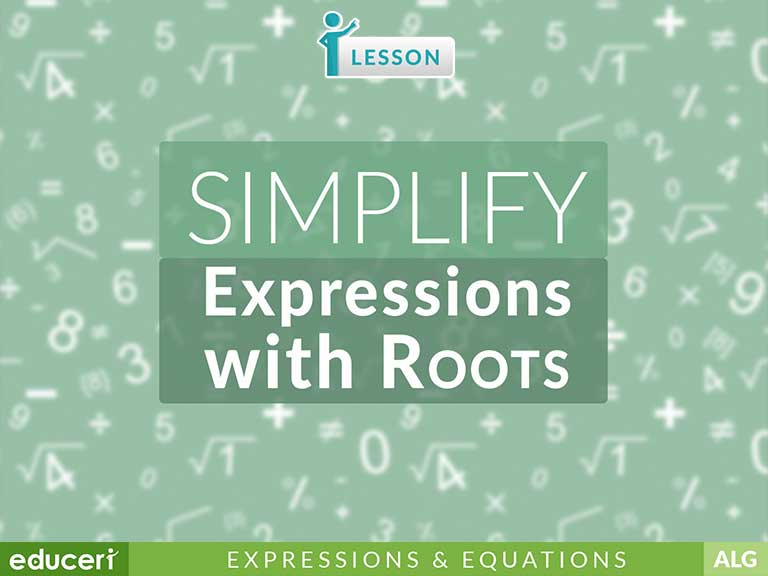Standard Alignments:
8.EE.2 Use square root and cube root symbols to represent solutions to equations of the form x2 = p and x3 = p, where p is a positive rational number. Evaluate square roots of small perfect squares and cube roots of small perfect cubes. Know that √2 is irrational.
HSN.RN.1HSN.RN.1 Explain how the definition of the meaning of rational exponents follows from extending the properties of integer exponents to those values, allowing for a notation for radicals in terms of rational exponents. For example, we define 5^(1/3) to be the cube root of 5 because we want (5^(1/3))^3 = (5^(1/3))^3 to hold, so (5^(1/3))^3 must equal 5.
HSN.RN.2HSN.RN.2 Rewrite expressions involving radicals and rational exponents using the properties of exponents.
